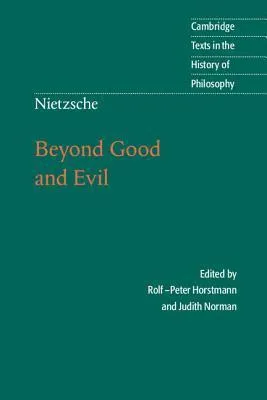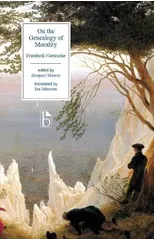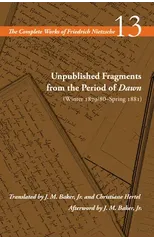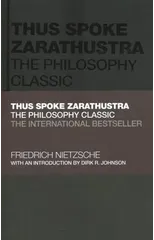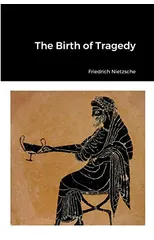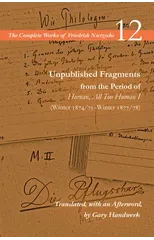Nietzsche
Beyond Good and Evil : Prelude to a Philosophy of the Future
(Author) Friedrich NietzscheBeyond Good and Evil is one of the most scathing and powerful critiques of philosophy, religion, science, politics and ethics ever written. In it, Nietzsche presents a set of problems, criticisms and philosophical challenges that continue both to inspire and to trouble contemporary thought. In addition, he offers his most subtle, detailed and sophisticated account of the virtues, ideas, and practices which will characterize philosophy and philosophers of the future. With his relentlessly energetic style and tirelessly probing manner, Nietzsche embodies the type of thought he wants to foster, while defining its historical role and determining its agenda. This edition offers a new and readable translation, by Judith Norman, of one of the most influential texts in the history of philosophy, together with an introduction by Rolf-Peter Horstmann that sets it in its historical and philosophical context.
Friedrich Nietzsche
Friedrich Nietzsche was a German philosopher, cultural critic, poet, and philologist, known for his profound influence on Western philosophy and literature. His most notable works include "Thus Spoke Zarathustra," "Beyond Good and Evil," and "The Birth of Tragedy." Nietzsche's writing style was characterized by his use of aphorisms, paradoxes, and poetic language, which challenged traditional philosophical conventions.
Nietzsche's contributions to literature include his exploration of existential themes, the concept of the "Ubermensch" (overman), and the reevaluation of moral values. His ideas on the will to power, eternal recurrence, and the death of God have had a lasting impact on literature, philosophy, and cultural criticism.
Nietzsche's most famous work, "Thus Spoke Zarathustra," is a philosophical novel that explores themes of individualism, self-overcoming, and the pursuit of meaning in a godless world. The book has been praised for its literary style and innovative approach to philosophical storytelling, cementing Nietzsche's legacy as one of the most influential thinkers of the modern era.
